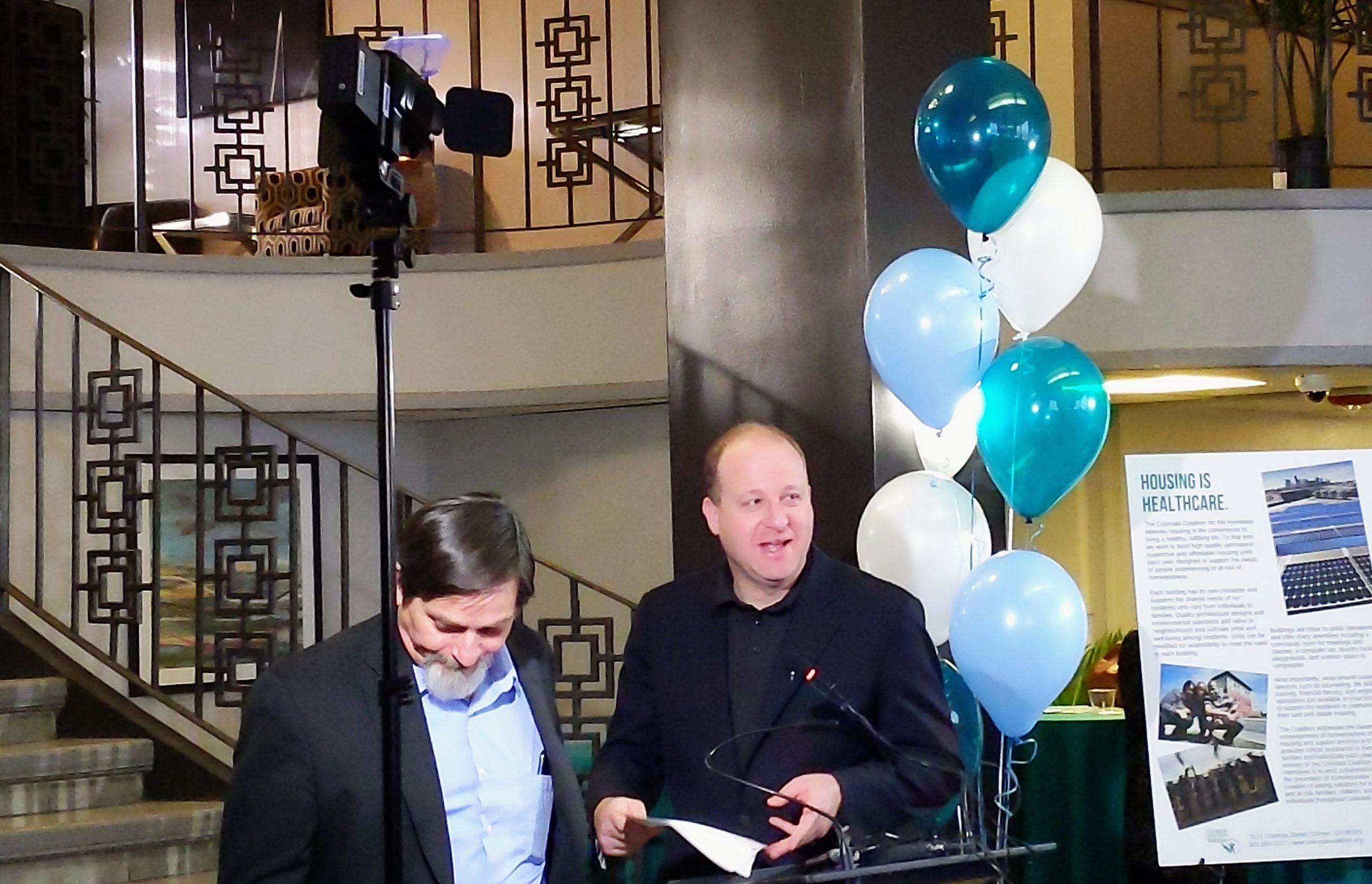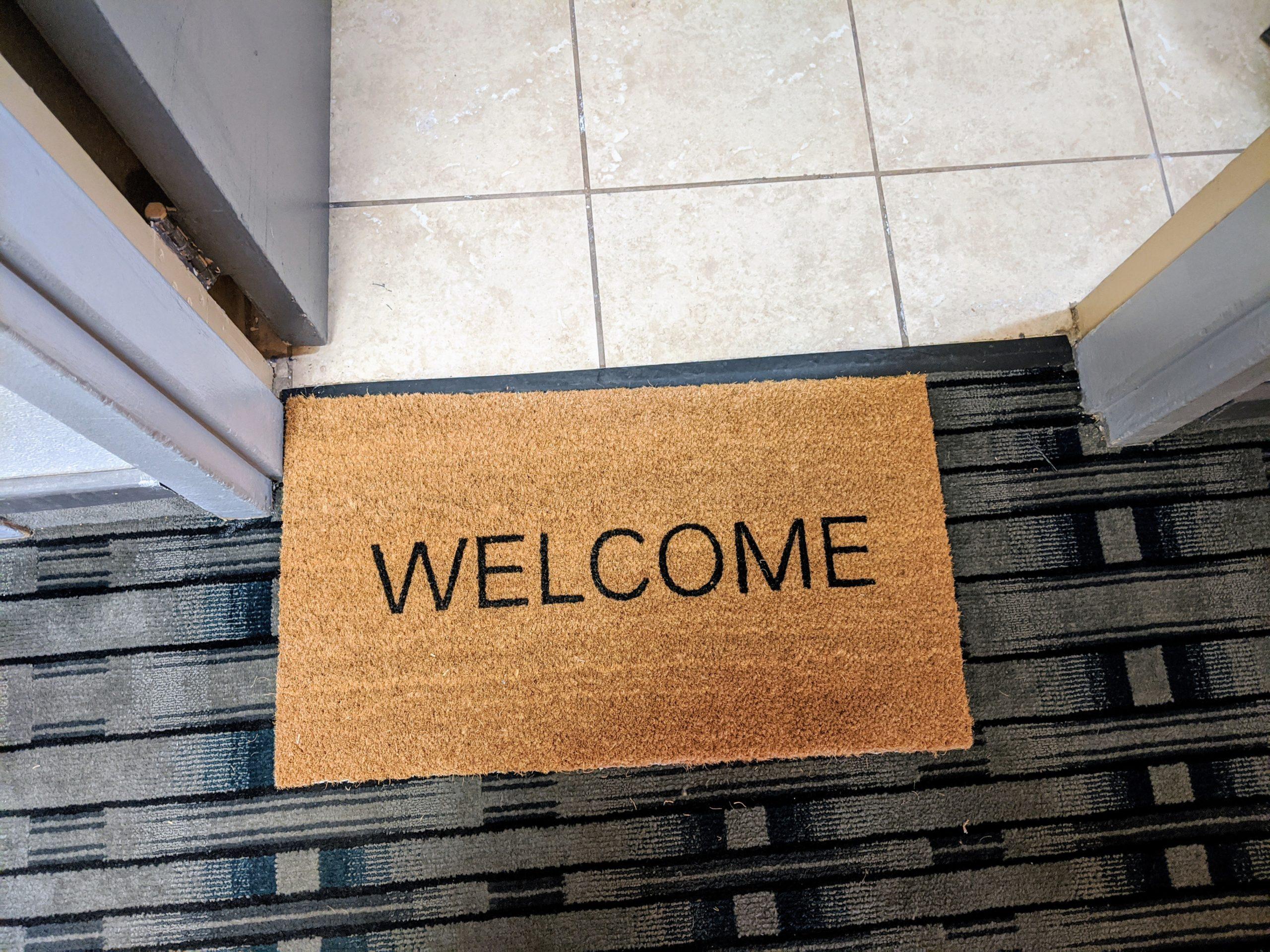The president and CEO of the Colorado Coalition for the Homeless noticed last May that a Quebec Street hotel was for sale.
By June, John Parvensky had signed an agreement for his nonprofit to buy the Quality Inn and Suites at 3737 N. Quebec St. By October, with promised funding from the state and the city, the $8.4 million deal -- compared to up to $35 million to build new housing for low-income households -- had closed. Tuesday, even before changing the sign on the roof, the Colorado Coalition for the Homeless was celebrating the completion of a renovation that added kitchenettes and made the hotel a 139-unit micro apartment building called Fusion Studios.
By month's end the Northeast Park Hill complex is expected to be fully leased to individuals and couples, some moving straight from shelters or the streets. Housing vouchers secured from the state and city will ensure residents pay no more than 30 percent of their income on rent and that the coalition has funds for maintenance and services. Parvensky said on average, tenants can afford to pay about $100 a month. For some, income may come solely from disability and other benefits.
Fusion Studios is the 17th building he's opened in three decades as head of the coalition, Parvensky said Tuesday. It isn't the largest or the prettiest, he said.
"It's the quickest one that we've been able to bring on line. Ever," he said.

The matter of months from signing to leasing compares with three years to build new affordable housing, Parvensky said.
It took some scrambling. Nearly $5 million of the funds to buy and renovate the building came from $129 million in bonds that the Denver Housing Authority announced in October it had secured. The city had pledged an existing half property tax mill to give DHA a stable source of revenue on which to make a case for borrowing. The coalition secured the pledge even before the closing of the bond deal, the largest single financing in DHA's 80-year history.
Fusion Studios was the first project to be funded from the bonds, and is a model for "expanded and accelerated affordable housing options for Denver's most vulnerable populations through dedicated partners like the coalition," DHA Executive Director Ismael Guerrero said in a statement.
The coalition got another $4.17 million from the state's Department of Local Affairs, and $3 million from a settlement of a lawsuit stemming from how the state has treated mentally ill people awaiting trial. Of the 139 units, 28 studios will be set aside for people awaiting trial on what are usually low-level crimes -- trespassing or public urination or drinking. The 28 apartments at Fusion are an alternative to waiting in jail before being deemed mentally competent to face trial.
A bridge loan from Northern Trust allowed the coalition to close the deal while the coalition awaited government funds.
Britta Fisher, head of Denver's housing department and a former coalition staffer, called Fusion Studios "practically instant housing."
"We all know that we need more housing units, that we need them quickly," she added during Tuesday's opening ceremony. "I truly hope we can replicate this model and partnerships at other sites in Denver."
Fisher said another 921 affordable units supported by city financing are now under construction at 14 sites across Denver and 1,383 more income-restricted units are in the planning stages.
Gov. Jared Polis, who also attended the Fusion opening, said the project "really shows what we can do when we get creative about affordable housing."
Polis said Fusion's tenants will include people who are working, some more than one job.
The cost of living, the governor said, continues to rise in Denver, "and in many cases wages just haven't kept up."
Each Fusion unit comes with a bed, dresser, desk and chair, television and other furniture. The building has a food pantry for residents. Denver' housing department is asking for additional funding from City Council to help provide support services for Fusion residents. The coalition already has a contract with the city under which 25 Fusion units will be temporary home for individuals expected to move on to other permanent housing. Wells Fargo Foundation also provided funds for support services.
Ten of the rooms are set aside for people experiencing homelessness who are frequent visitors to Denver Health's emergency rooms.
The coalition, which in addition to building housing connects people to healthcare and jobs, is a partner in Denver's pilot social impact bond program. The social impact bond program aims to save money spent repeatedly arresting and jailing people experiencing homelessness or caring for them in emergency rooms. In that program, financed in part by private investors with a social mission, the coalition and the Mental Health Center of Denver use police arrest data to identify people experiencing chronic homelessness, then get them housing and health care, food, transportation and legal support.













